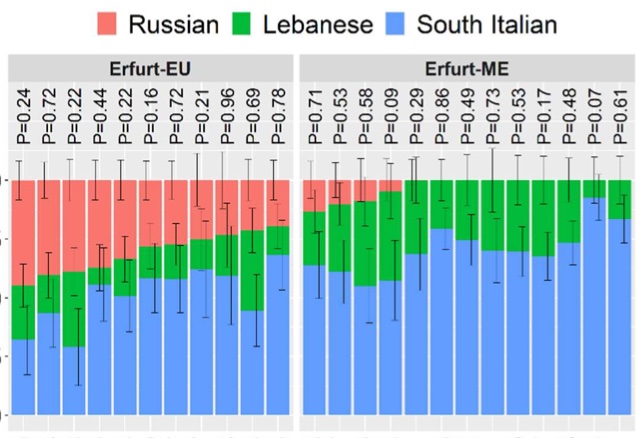Waldman et al. 2022

Authors: Shamam Waldman, Daniel Backenroth, Éadaoin Harney, Stefan Flohr, Nadia C Neff, Gina M Buckley, Hila Fridman, Ali Akbari, Nadin Rohland, Swapan Mallick, Iñigo Olalde, Leo Cooper, Ariel Lomes, Joshua Lipson, Jorge Cano Nistal, Jin Yu, Nir Barzilai, Inga Peter, Gil Atzmon, Harry Ostrer, Todd Lencz, Yosef E Maruvka, Maike Lämmerhirt, Alexander Beider, Leonard V Rutgers, Virginie Renson, Keith M Prufer, Stephan Schiffels, Harald Ringbauer, Karin Sczech, Shai Carmi and David Reich
Abstract: We report genome-wide data from 33 Ashkenazi Jews (AJ), dated to the 14th century, obtained following a salvage excavation at the medieval Jewish cemetery of Erfurt, Germany. The Erfurt individuals are genetically similar to modern AJ, but they show more variability in Eastern European-related ancestry than modern AJ. A third of the Erfurt individuals carried a mitochondrial lineage common in modern AJ and eight carried pathogenic variants known to affect AJ today. These observations, together with high levels of runs of homozygosity, suggest that the Erfurt community had already experienced the major reduction in size that affected modern AJ. The Erfurt bottleneck was more severe, implying substructure in medieval AJ. Overall, our results suggest that the AJ founder event and the acquisition of the main sources of ancestry pre-dated the 14th century and highlight late medieval genetic heterogeneity no longer present in modern AJ.